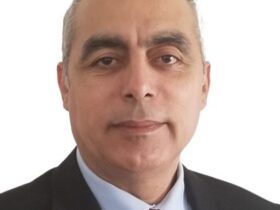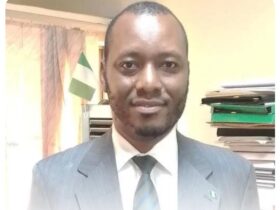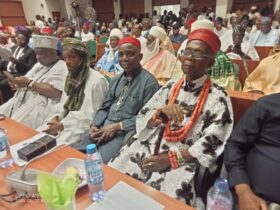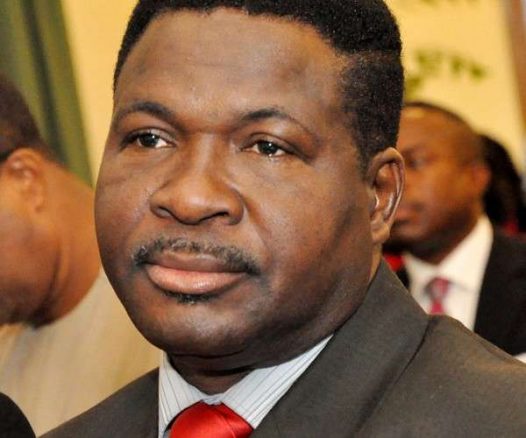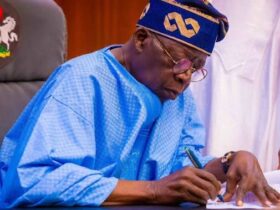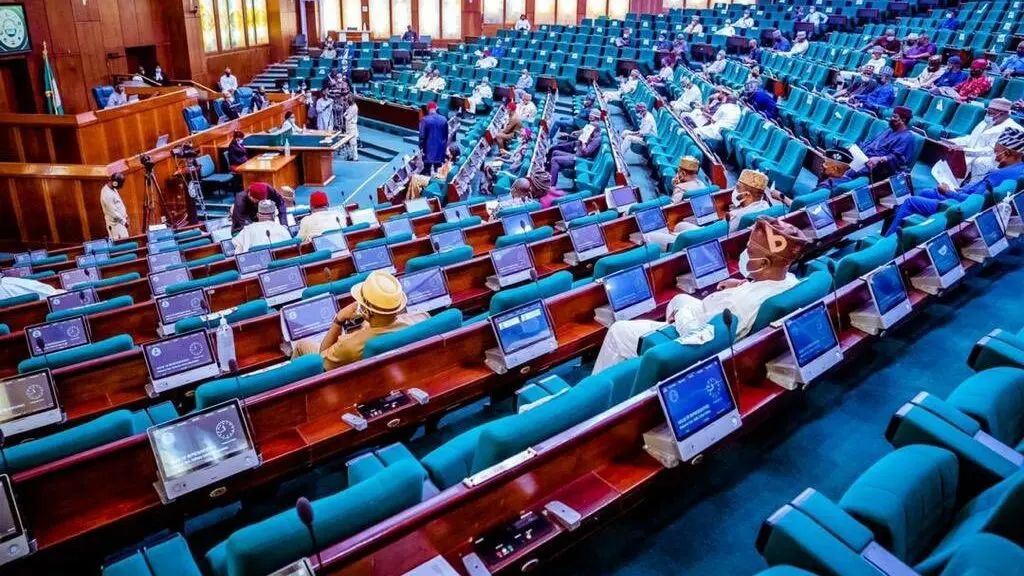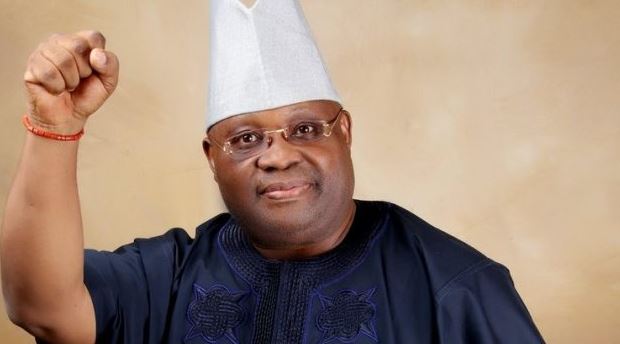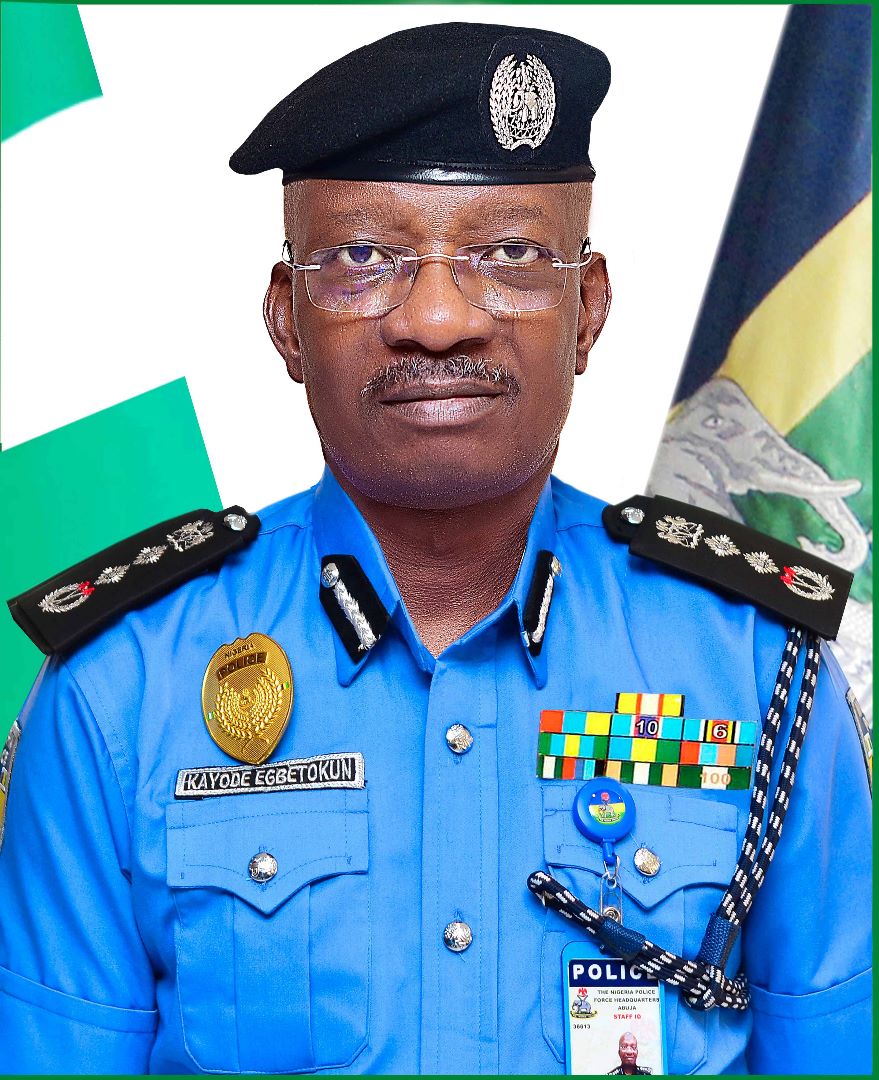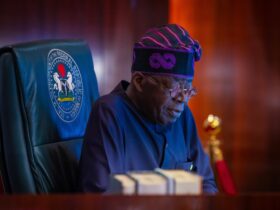By PROF MIKE A. A. OZEKHOME, SAN, CON, OFR, FCIArb, LL.M., Ph.D, LL.D, D.Litt.
INTRODUCTION
Nigeria, the most populous country in Africa, has a rich and diverse political landscape. Since gaining independence from British colonial rule in 1960, Nigeria has experimented with various forms of governance, including parliamentary systems and presidential systems.
From the 1922 Clifford Constitution; the 1946 Arthur Richard Constitution; the 1951 McPherson Constitution; the Federal Constitution (otherwise known as the Lyttleton Constitution) of 1954 and the 1963 Republican Constitutions, Nigeria still yearns for nationhood. One of the most debated aspects of Nigerian governance however is the duration of political tenures, particularly for Governors and Presidents.
In this writeup, I advocate for a constitutional single-term or tenure of six years for the President and Governors, as well as their respective Deputies. I will delve into the rationale behind this proposal, the potential benefits it could bring to Nigeria; and also address common criticisms and concerns.
MEANING OF SINGLE-TERM
A single term is a length of time a person serves in a particular elected office. The Constitution of the Federal Republic of Nigeria, 1999 (as amended) prescribes two-term of four years each for the President, the Governors and their Deputies. See Sections 137 (1)(b) 182(1)(b) of the Constitution of the Federal Republic of Nigeria 1999. The reasons are obvious and well-documented and have engaged (and continue to engage) the attention of the academic world, public affairs commentators and public office holders alike at all levels. These include those likely to be directly affected by any changes to the status quo, i.e., Presidents and Governors. I will, in this write-up, present a broader and I believe, more convincing reasons why Nigeria should change the present status quo.
DEMERITS OF A SINGLE TERM TENURE
Advocates of maintaining the present tenure system are as vociferous (if not more) than its opponents. Their arguments are worth considering, even if not compelling or convincing. Among them, are the fact that, in their view, a single term is a constraint to continuity and predictability as well as a minus to presidential accountability.
They also argue that, in virtually all the countries (at least in Africa) which practice single term limits for their elected Presidents, it has become a tool of manipulation by incumbents to elongate their tenure.
This has achieved nothing but the dubious distinction of the difference between six and half-a-dozen. In other words, a difference in nothing but name: a subterfuge. Accordingly, they argue, that what Nigeria needs is good governance not, what they characterize as a sterile debate about terms of office – no matter how brilliantly some of the suggested options or models may have performed in different climes.
In their view, our problem is not how long or short the tenure of our elected President might be, but rather, who we elect; how we elect them; and the structure of the relevant institutions. In other words, the caliber of our elected representatives (leaders), the credibility or legitimacy of the process of their selection or emergence and the quality of the institutions which are responsible for producing or filtering them, respectively, are what should count.
While the proposal for single-term tenure of six years for Presidents, Governors and their Deputies offers numerous potential benefits, it is not without the above criticisms and serious concerns by its antagonists. Here are some of the common objections often raised as demerits and disadvantages of a single term tenure:
Lack of Accountability: Critics argue that without the prospect of re-election, politicians may become less accountable to the people. To address this concern, strong accountability mechanisms, such as robust oversight institutions and independent auditing, would need to be in place, which they argue, are not there.
Unfulfilled Promises: Skeptics suggest that politicians could make grandiose promises during their single term, knowing that they will not be held accountable for delivering on those promises. However, public awareness and media scrutiny can help mitigate this issue.
The Risk of Lame Duck Leaders: Concerns exist that leaders in their final year of a single term may become “lame ducks,” with diminished motivation and incentive to govern effectively. It is argued that the law of Diminishing Returns set. Strong leadership and public engagement can mitigate this risk.
Constitutional Amendments: Implementing single-term tenure would require significant constitutional changes, which could be challenging to achieve given the complexities of Nigerian politics and legal processes, especially the labyrinthine provisions of section 9 of the 1999 Constitution, as amended.
THE RATIONALE AND MERITS OF A SINGLE-TERM OF SIX YEARS
There are may reasons why a single term of six years of office lasting six years is preferable. And this is my humble submission.
ABUSE OF INCUMBENCY
The notion of non-re-electable Executive (whether President or State Governors) is often expressed as the strongest incentive for self-perpetuation, irrespective of actual performance during the first tenure of such an incumbent President or Governor. This is not peculiar to Nigeria or even contemporary times, because in both France and the United States, the misuse has also been part of their political culture. In the former, French philosopher Alex de Tocqueville is reported to have lamented that “The desire to be re-elected is the chief aim of the President; that the whole policy of his administration, and even his most indifferent measures, to this object.”
In the US, according to Jasper Nathaniel (in an article titled ‘Make the U.S. Presidency a single 6- year term’, referenced by legendary Aare Afe Babalola, SAN), the distraction occasioned by the campaign for former President Obama’s re-election in 2012 – less than 2 years into his first term – massively distracted him from focusing on “the country’s business”. Recalling that the proposal for a single Presidential term limit of 6 years was first mooted and rejected almost two and half centuries ago (in 1787), the icon argues that, as “Head of State, Chief Diplomat and Legislator as well as Commander-In-Chief, the (U.S.) President’s plate is always over-filled. Factor in frequent unanticipated problems and demands of the job can become in sufferably large”; adding that, (as a result), the actual issues that the President was elected to deal with miss out on a tremendous amount of time, energy and resources. These sentiments are shared by University of Texas Political Scholar, Bruce Buchanan, who opined that “To run for re-election in the midst (of the competing challenge for the President’s time and attention) can best be described as an unreasonable addition … and the re-election period ultimately becomes a distracting period for the President”. Kevin Costner was dead on track when he opined that “people who go into politics want to do the right thing. And then they hit a big wall of re-election and the pettiness of politics. In the end, politics gets in the way of the business of the people”. How sad!
Back home in Nigeria, no less a person than a distinguished President Dr. Goodluck Ebele Jonathan, GCFR, (the “my ambition is not worth the blood of any Nigerian exponent”), added his weighty voice to the debate when he noted – while still in office – that “Every four years you conduct elections, you create so much tension in the political environment. It creates series of confusion in the political environment”. To avoid being misunderstood, he quickly added that his proposal of a single presidential term of 6 years, alone – ipso facto, without more – “will not bring one hundred percent stability. There is no political system that is one hundred percent stable”.
The foregoing challenge dovetails into the serious issue of incumbency factor in Nigeria’s peculiar milieu. I believe that a single six-year presidential term has the advantage of mitigating (if not outrightly eliminating) what many regard as the damaging effect of incumbency factor in our elections. This is because, it would, in the words of Naiwu Osahon, improve access of all our ethnic groups and religions to the highest elected executive positions and foster a greater sense of belonging. This would also potentially cater for the argument in favor of zoning – another perennial big and menacing elephant in the room in our political culture.
A corollary to the foregoing is that a single term has the potential of creating a level playing field. This is because it will eliminate the unfair advantage enjoyed by an incumbent in terms of access to the levers of power – particularly economic power (which is more often than not, derived from the public till or State resources). But that is not all. It includes control (either directly or otherwise), of the notionally independent electoral umpire, INEC. Experience has shown that, under an overbearing President who seeks re-election, INEC is only independent in name. the last presidential election of 25th February, 2023, shows that INEC is anything but independent from the ruling party.
AVOIDANCE OF POLITICAL VIOLENCE
In addition to the benefits of a single 6-year tenure identified above, I firmly believe that such a policy will ensure that aspirants for both the Presidency and State Governorship will know, well before hand, that they have only one chance to get it right. It is either a hit-or-miss. It will, therefore, concentrate their minds and enable them to focus on achieving the goals for which they were elected: on fulfilling their election promises. They will thus have no excuses, and no one to blame if they fail. They will not be distracted by concerns about an imminent campaign for re-election. This means that they will not consider touching the public fund (or padding budgets or contracts) to defray the ever-rising and humongous cost of electioneering in Nigeria. There will be less political tension and bickering. Lives and broken limbs will be spared which might otherwise be lost to political violence. And we will all be the better for it.
In 2014, former president, Goodluck Jonathan, proposed the six-year single term for President and Governors. He argued that it would ensure good governance, stem political acrimony during change of government and cut down drastically on costs of electioneering campaigns. Professor Charles Soludo was in 2018, also in support of a 6-year single term for Nigerian Presidents. These proposals, have at some point, been laid before the National Assembly in the form of a bill. However, the said bill was always rejected by the lawmakers. They did so in 2019. A former Vice President, Atiku Abubakar, who supported the bill expressed displeasure over its rejection by the lawmakers. According to Atiku, “Second term obsession rewards incompetence by allowing failed incumbents to be re-elected regardless of their performance record. It also denies political parties the opportunity to replace failed incumbents with better candidates within the parties in the name of right of first refusal”.
Many have also argued – credibly – that a single term of six (6) years is sufficient to make an impact for a serious-minded, focused, patriotic and people-oriented leader – either a President or Governor.
ENHANCEMENT OF POLITICAL STABILITY
One of the primary arguments in favour of a single-term tenure is the potential for enhanced political stability. In the current “win-at-all-cost” system, elected officials often spend a significant portion of their tenure and resources preparing for re-election campaigns, sometimes even while just commencing their initial mandate. This constant focus on re-election often distracts from the pressing issues of governance facing the nation. Nigeria, as I have said again and again, using my OZEKPEDIA Neologism, merely practise “ELECTIONOCRACY” and not Democracy. “ELECTIONOCRACY ” is a system of government where elections are held as a ritual, at intervals of 4 years in Nigeria, with the emergent elected or selected leaders, rather than giving the electors dividends of democracy, merely stabilise themselves in power, commence primitive acquisition of wealth and forget the electorate that elected the leaders in the first place. They then begin another round of campaigns, after pretending to work for two years. They are already looking forward to the next election when the electorate has not benefited from any democratic dividends from their first term. To avoid this fixation with elections round the year, a single-term tenure would eliminate the need for elected officials to campaign round the clock for re-election. This will allow them focus their entire term of office on governing effectively. This would also most likely lead to more coherent and consistent policies, as politicians would not need to make short-term decisions to appease voters and donors, only for immediate successors to cancel such projects and start their own.
FOSTERING ACCOUNTABILITY AND TRANSPARENCY
Accountability and transparency are the cornerstone of good governance. However, in Nigeria’s current warped political system, accountability and transparency are more often than not compromised on the altar of politicians prioritizing personal and party interests over those of members of the public just to secure re-election. Single-term tenure, it is argued, would encourage greater accountability and transparency during the one-term in office. This is because the office holder knows fully well that he either sinks or swims with his only available single term.
Without the looming spectre of re-election, elected officials would have more freedom to make critical and sometimes, painful decisions that are genuinely in the best interest of their constituents. Additionally, the public would have a clearer basis to evaluate their performance since they may never have the opportunity to run for re-election again and make the usual banal and empty political promises.
SAVING RESOURCES
Nigeria’s electoral processes are unduly capital and resource-intensive. Conducting elections, especially on a national scale, requires huge allocation of funds and manpower. With elections happening less frequently due to single-term tenures, the country could save substantial resources and plough them towards more meaningful projects. These saved resources could be redirected towards critical areas such as healthcare, education, capacity building, youth and infrastructural development, and poverty alleviation, ultimately benefiting the citizens and improving their quality of life.
AVOIDANCE OF POLITICAL RANCOR
The divisive experience of countries like Kenya, in 2003 and other African countries such as Zimbabwe, Cameroon, the Gambia, Cote d’Ivoire and, more recently – Gabon, Niger, Burkina Faso and Mali have shown that attempts by unpopular Presidents to perpetuate themselves in power, some by way of birthright, primogeniture by way of hereditary succession, in total defiance of either the law (through bogus constitutional amendments), or subversion of the popular will of the people, as expressed through the ballot, have often resulted in unsalutary, and at times, violent outcomes: civil unrests; insurrections; and even military coups. A single fixed-term (provided it is scrupulously adhered to, of course) is a viable option in forestalling such national risks of needless uprisings and internal schisms.
Nigeria has, even in recent past, unfortunately, experienced its fair share of electoral violence and manipulation of the peoples’ will. One major reason behind this recurrent violence is anchored on the intense and unhealthy competition for political power, especially during the four yearly ritual re-election campaigns. In a single-term tenure system, the motivation for such “I-must-grab-power” violence diminishes significantly since such politicians will not need to vie for re-election.
Thus, by reducing electoral violence and turbulent electioneering, single-term tenure could foster a more predictable and stable political environment. A conducive political environment will in turn encourage a peaceful polity, foreign investment, economic growth and social development.
ENCOURAGEMENT OF MERITOCRACY
Under the current political system of bootlicking, ego massaging, sycophancy and toadiness, political leaders often prioritize loyalty to their party and financial backers when considering appointments to key positions. This often results in prebendalism, cronyism, nepotism, favouritism, leading to the appointment of unqualified individuals. Appointment of such second, third and fourth electoral elements usually result to ineffective governance. In a single-term tenure system, politicians may be more inclined to prioritize merit and competence over loyalty, since there would be no second bite at re-election. This shift towards competence, capacity and meritocracy ultimately leads to better and more productive governance, as leaders would more likely appoint individuals with the requisite skills and expertise to manage various sectors of the government effectively; even where such persons are not members of their political party.
MITIGATION OF CORRUPTION
Corruption has been a bane and persistent challenge in Nigeria’s political landscape. The undue pressure to secure funding for re-election campaigns sometimes pushes politicians to engage in corrupt practices. Many during their tenure sell their properties, or take huge bank loans to be repaid. By eliminating the need for re-election campaigns, a single term tenure system could drastically reduce the incentives and fallow environment for corruption.
A single, non-renewable term also ensures that, politicians may be less prone and less inclined to embezzle public funds as they would not have any opportunity to benefit from corrupt activities beyond their one term in office.
SINGLE TERM FACILITATES LONG-TERM PLANNING
Effective governance usually requires long-term planning and implementation of policies and projects that transcend the four years short-term political cycle. In our current elections-laden system, elected officials often hesitate to embark on long-term initiatives that may not yield immediate political benefits. They therefore take up white elephant projects that are long on razzmatazz, but short on real value to the people.
With a single-term tenure, politicians are encouraged to focus on long-term projects and policies that would benefit the people, without the fear of losing votes in the next imminent election. This ensures crucial infrastructure projects, educational reforms, and sustainable development initiatives that can drive lasting progress.
STRENGTHENING DEMOCRACY
A single-term tenure system also has the capacity to strengthen Nigeria’s democracy through the promotion of a more level playing field for political aspirants. Under the current political system, incumbents often enjoy a significant advantage in re-election campaigns, including unhindered access to state resources and the use of powerful government machinery. This often stifles healthy competition and also hinders the emergence of fresh, innovative and progressive leaders.
A single-term tenure would reduce the undue advantages of incumbency, thus encouraging a more vibrant and competitive political landscape where aspiring leaders are judged on their merits and ideas, rather than their access to state resources.
MY CONCLUSION AND RECOMMENDATIONS
While it is conceded that no system is fool-proof or fail-safe (no one size ever fits-all), a lot can, however, be said for my proposal of a 6-year single term, as opposed to the existing status quo. This is because of our peculiar characteristics as a people and a nation – the notorious ‘Nigerian factor’. To start with, the Presidential system which we practise breeds a “winner-takes-all” culture, which, in turn, fosters the “do-or-die” politics which has been our experience since independence.
Added to this, is our prebendalism and system of political patronage or cronyism in an environment of pervasive poverty where power is seen as a means of oppressing one’s enemies – real or imagined – not just political opponents. It is also a means of amassing stupendous, albeit ill-gotten wealth, because it is regarded not merely as a meal ticket, but as a means of securing one’s future and that of generations yet unborn.
This combination has been the deadly cocktail which has fueled the sit-tight syndrome behind the obsession with self-perpetuation among the power elite in Nigeria and the African continent. Lest we forget, it is not a peculiarly civilian contagion, as the recent rash of coups – particularly, in the West African sub-region, has demonstrated.
It follows that, beyond legal diktats which impose Presidential terms for any number of years, (which, as indicated, I fully support and endorse) what is called for is a root-and-branch reform which involves changing our attitudes, disposition, orientation and values. We must embrace and practise a new and different democratic ethos of tolerance, plurality, inclusiveness and respect for the rule of law; particularly, the sanctity and supremacy of the Constitution.
We must do away with our bad old ways which emphasize the self, the family, the ethnic group and personal creed or religion; and replace them with their polar opposites: the larger, broader interest of the nation-state, with all its diverse and divergent component units. We must subordinate primordial sentiments to the greatest good of the greatest number.
We must respect and strengthen our political and legal institutions by ensuring that they are devoid of partisan political influence – especially in their constitution, composition and recruitment process. They must be perceived by all to be fair and impartial arbiters of electoral and other contests. In the language of the law, justice must not only be done at all times, but it must manifestly be seen to have been done.
Again, as a famous English Jurist (Lord Denning) once put it, justice is destroyed when reasonable men and women go away thinking “the judge is biased”. This applies with equal vigour to the electoral umpire: It loses credibility when the electorates (and non-electorates alike) believe it has been compromised to do the bidding of one or more of the political class or contestants in the election which it superintends. To the extent that this sentiment breeds hopelessness, it simply plays into the hands of ambitious military officers, who are ever-ready to seize such opportunities to make a grab for power – not necessarily, it must be said – for altruistic or populist reasons, but simply to feather their own nests. And so it continues, seemingly a vicious cycle, to which there is no end. Is Nigeria doomed to such a fate? I do not know. Or, do you? Hence the seriousness with which the leadership challenge deserves to be taken.
So, yes to a single term of 6 (six) years at the centre and in the States. The benefits are only too self-evident. It ticks most, if not all, the boxes and commends itself as the lesser of two evils. However, beyond prescribing it as diktat, a lot of work needs to be done to ensure that it abides and endures in the long term – preferably for all time. It is working in Mexico (where it is called, intriguingly, ‘Sexino’). But, that is Latin American. Globally, however, it is the exception, rather than the rule. Across the world, the practice continues to be dual-term and even – as in Algeria, Cambodia, Singapore and Sri Lanka – unlimited-term presidencies.
As we say, rather self-righteously in Nigeria, that is not “our portion”. This is a prayer to which everyone cannot but intone or chorus: “Amen!”. But heaven only helps those who help themselves. So, we must pull ourselves by our bootstraps. It is up to us to entrench a culture of good governance which ensures that the Fundamental Objectives and Directive Principles enshrined in our Constitution (under Chapter II) come alive and become our lived experience – every single one of us – including generations yet unborn.
I believe that this is the best way of fostering the requisite stability and eliminate the tensions which are the catalysts for the so-called ‘sterile’ debates over term limits. This is the only means of achieving and sustaining a credible leadership recruitment process which works for all. That way, Nigeria might yet join Mexico as the first African country to successfully adopt and apply the six-year single Presidential tenure. Whatever we might call it becomes another matter entirely.
Nigeria stands at a crucial crossroads in its democratic journey. To enhance political stability, reduce electoral violence, foster accountability, save resources, encourage meritocracy, mitigate corruption, facilitate long-term planning, and strengthen democracy, a constitutional single-term tenure of six years for the Presidents, Governors and their Deputies deserves serious consideration. I so move.
While there are valid concerns and criticisms to address as highlighted in the writeup, the potential benefits of such a reform could be transformative for Nigeria’s governance. It is essential for the nation’s leaders, politicians, scholars, and the Civil Society to engage in thoughtful and inclusive dialogue to further robustly explore this my proposal and chart a new course toward a more stable, transparent, accountable, and prosperous Nigeria that we all will be proud of. This is my humble submission.

